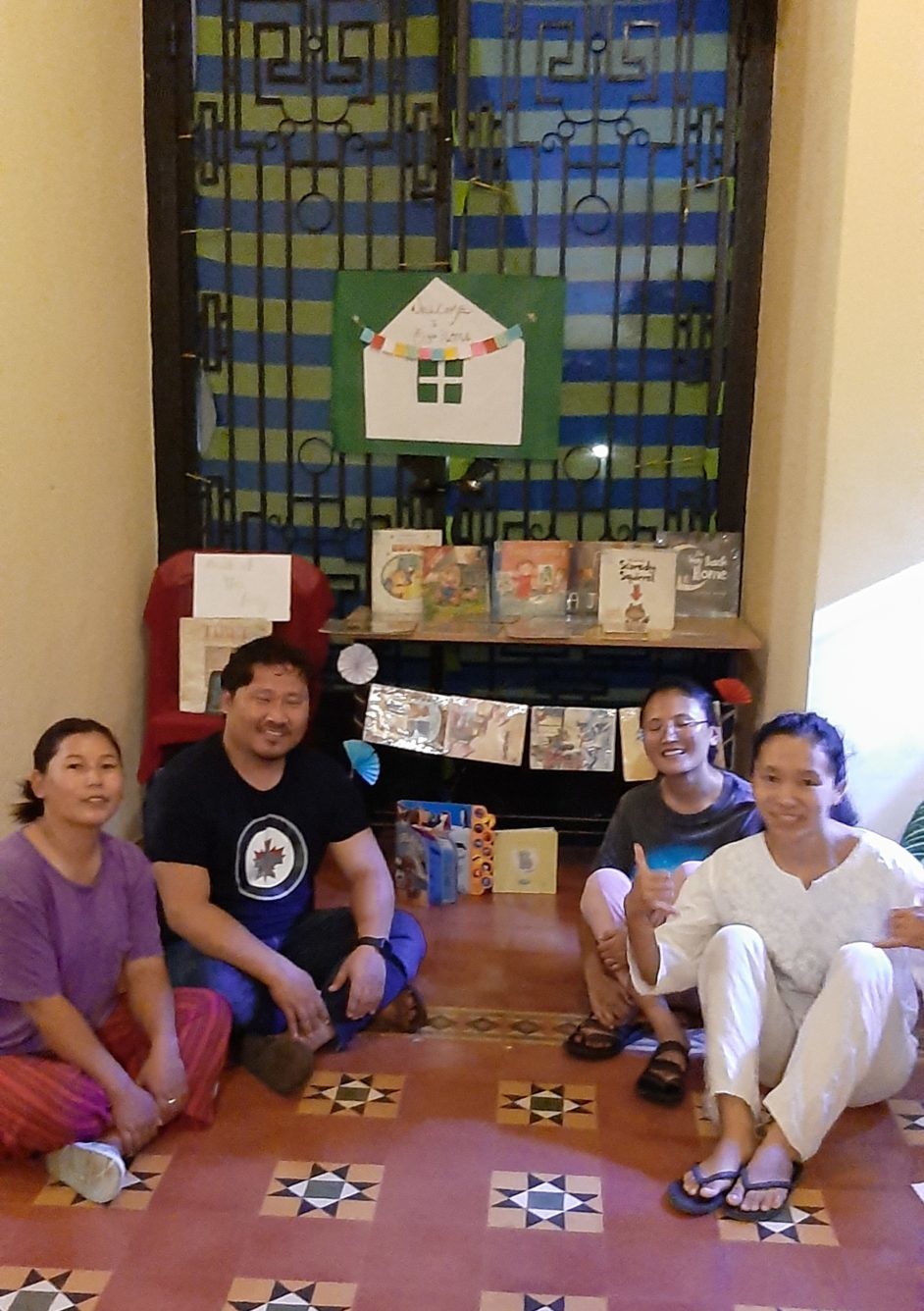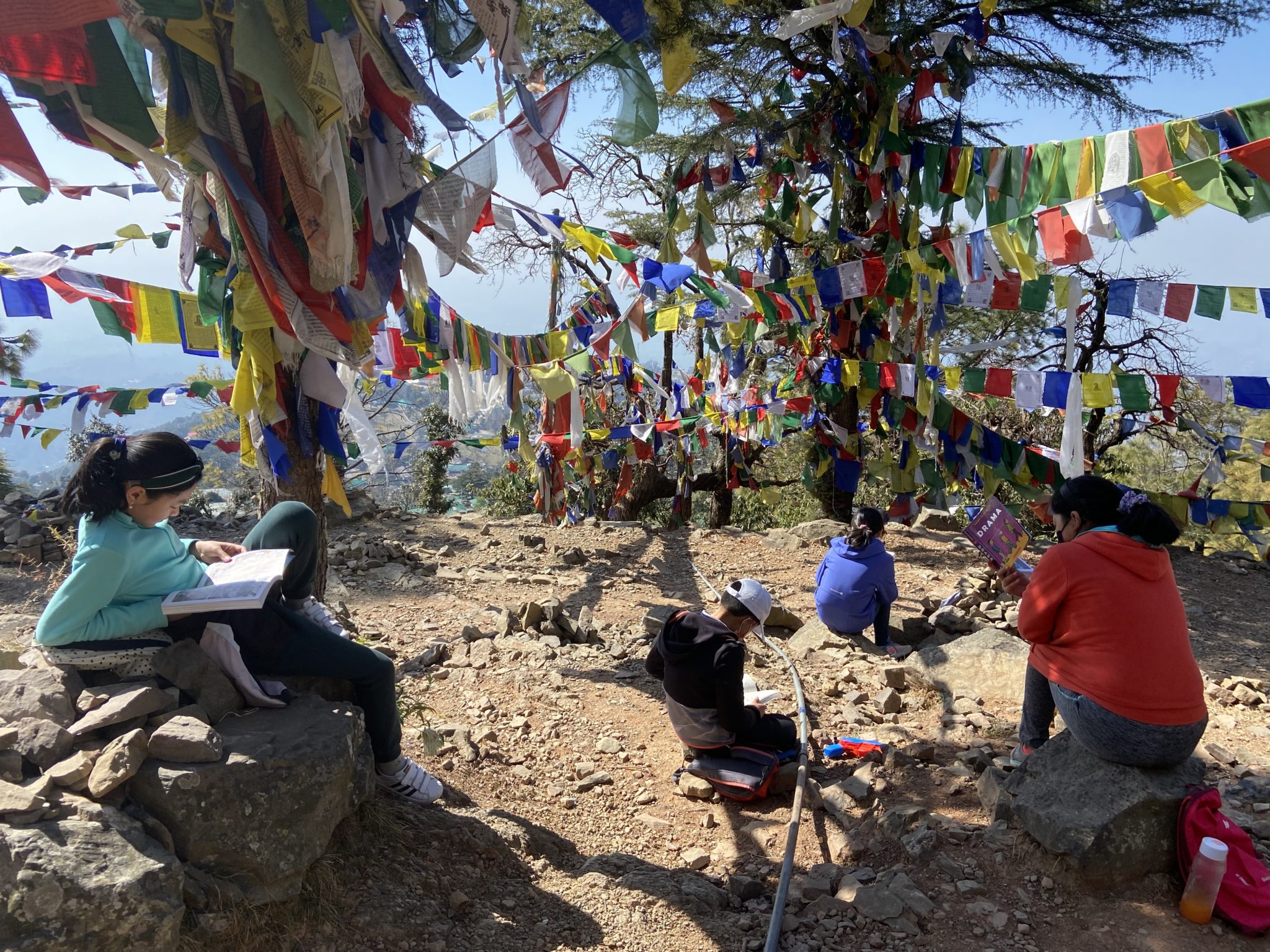Written by Tsering Dolma, LEC 2021
I enrolled in the LEC several months after I joined my current job at Manjushri Educational Services and its children’s library. Manjushri Educational Services, based in Dharamshala was formed in 2015 by individuals who are strong advocates for the importance of emphasis on Early Childhood Care and Education in the Tibetan community. Parenting workshops, publication of children’s books in Tibetan language and the children’s library are the key areas of work of MES.
Even though I identified myself as a reader and strongly believed in the importance of libraries, it was a completely different thing to work in a library. I was not very confident at my new job in the first few months. It was a children’s library and I had never worked with children before. So, it was quite challenging in the beginning to attend to young visitors in the library.
After joining LEC in October 2021, my work in the library had a new meaning now. It became easier and harder at the same time for me. LEC made the job easier for me because it showed me how a library for children works and the course enabled me to meet many people in the field who know a lot and are passionate about library work and more importantly, people who are ready to help. The course made the job a little harder for me because it opened up to me how a responsible library and the people working in it can change the community. LEC introduced to me the responsibilities and obligations of a library educator if one is serious and genuine about their work. It taught me that library work is more than a mere circulation of books and that a library educator has the space and capacity to contribute significantly to its community through various programs and activities.
Moodle discussions, assignment writing and field project. All of these sessions were rich, insightful and engaging; they brought into the discussion diverse ideas and experiences in and around library work from across the country. While all of these have been enriching and educational experiences for me, I would say the field project was one of the most eye-opening experiences of LEC.
The LEC field project had several sub-components. There was the field project question to be written and shared with a panel of faculty and mentors first, and feedback from the same incorporated. Then the project itself involved engaging with young children, keeping regular reflection notes, writing reports and presenting our findings and learnings at last. The way the faculty and our mentors asked numerous questions and polished our research questions pushed us ahead to find clarity I would not otherwise have found. My mentor has been there for me throughout the LEC and throughout every step of the way of my field project. The hard work and dedication of everyone was truly inspiring.
In the course of my field project, I learned that children are not as daunting to work with as I imagined. The field project made me realize that children are capable young readers who are in different stages of their reading journey. Another thing that I learned from my field project is that the relationship that we library educators build with our library members or the children should be mainly that of a reader to another reader instead of a library educator as an authority and children as the beneficiaries of library resources. This field project taught me not to make assumptions about children’s reading capacity, language skills and reading preferences. Keeping an open mind is the way forward because when you make a baseless assumption, your work with children gets restricted. In addition to keeping an open mind, it is also necessary to keep room for flexibility. When something doesn’t work, it is useful to make room for changes and new ideas.
All in all, LEC has shifted my perspectives on many aspects of libraries; it made me realize that the work we do in the library is an important contribution to our communities and world at large, it also made me realize that library work is a labor of love and that it requires patience – patience to believe in the process and patience to see its impact.


